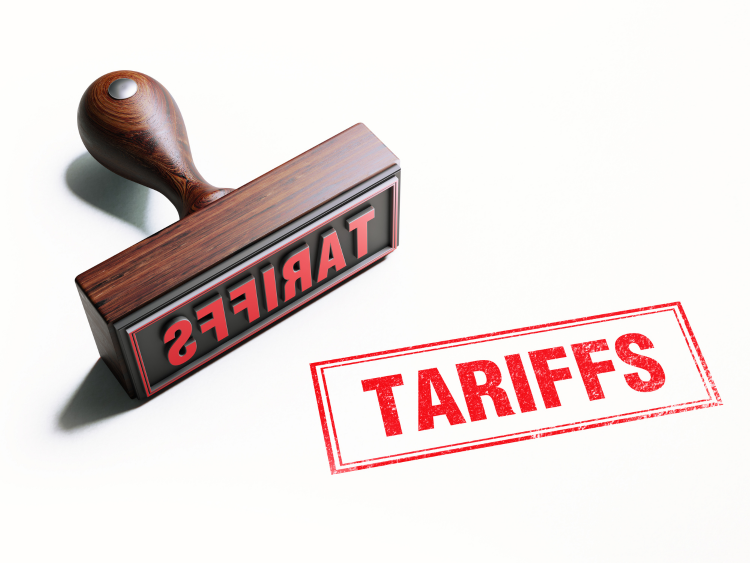Government/Policy

August 19, 2025
Inclusion requests result in 400+ additions to S232's derivatives list
Written by Laura Miller
The US Commerce Department has added over 400 HTS codes to the list of steel and aluminum derivative products covered under the Section 232 tariffs.
The announcement, published in the Federal Register on Tuesday, Aug. 19, comes after President Trump had directed Commerce to establish a S232 inclusions process earlier this year.
The Department’s Bureau of Industry and Security (BIS) accepted inclusion requests during a two-week window at the start of May. That was then followed by a public comment period.
After considering all requests and comments, BIS accepted 407 HTS codes for addition to the S232 tariff list. It decided not to include 60 requested codes “because they are subject to other ongoing investigations pursuant to Section 232 or other trade statutes.”
The S232 tariff will only apply to the steel and aluminum content in the derivative products. However, “the non-steel and non-aluminum content will remain subject to the reciprocal and other applicable tariffs,” BIS noted.
Items added to the S232 covered derivatives list include wind turbines and their parts and components, mobile cranes, bulldozers and other heavy equipment, railcars, furniture, compressors and pumps, and hundreds of other consumer and industrial products.
“Today’s action expands the reach of the steel and aluminum tariffs and shuts down avenues for circumvention – supporting the continued revitalization of the American steel and aluminum industries,” stated Under Secretary of Commerce for Industry and Security Jeffrey Kessler.
Note that BIS’s next inclusion request window will open in September.
Domestic steelmakers cheer
Both trade groups representing American steelmakers in Washington, D.C., welcomed the news.
“The steel tariffs are necessary for the national security that a strong steel industry provides,” said Philip Bell, president of the Steel Manufacturers Association (SMA). “The inclusions process is an important addition to the 232 steel tariffs, ensuring a level playing field for American-made steel.”
American Iron and Steel Institute President and CEO Kevin Dempsey commended the Trump administration’s “decisive action to broaden the tariff coverage” and strengthen America’s steel sector.
He further highlighted how the S232 program sees steel as critical for military equipment, infrastructure, and emergency response needs. “Strengthening these tariffs helps ensure that America is not reliant on foreign imports in times of national security threats and crises,” he noted.
AISI member Cleveland-Cliffs also applauded the addition of electrical steel laminations and cores, as well as certain stainless steel components used in automotive exhaust systems.
The company was responsible for several inclusion requests, as were other domestic steelmakers, including Nucor, Steel Dynamics Inc. (SDI), U.S. Steel, and North Star BlueScope.
“Today’s action taken by the Secretary of Commerce gives us certainty that the American domestic market will not be undercut by unfairly traded steel embedded in derivative products,” said Cliffs Chairman, President, and CEO Lourenco Goncalves.
He credited the move for allowing Cliffs to continue to invest in its stainless operations in Coshocton and Mansfield, Ohio, and its electrical steel ops in Butler, Pa., and Zanesville, Ohio, “in support of our domestic clients producing Made in USA cars, appliances, and electrical transformers.”
OCTG makers support the tariffs
The US OCTG Manufacturers Association (USOMA), which represents ~80% of the domestic OCTG industry, also announced its support for the administration’s 50% steel and aluminum tariffs.
USOMA said imports this year are surging despite declines in rig counts and a 10% decline in OCTG consumption. The oil country tubular goods are coming from countries that primarily produce OCTG for export, including Korea, Taiwan, and Austria. In the first half of 2025, imports accounted for ~41% of OCTG market share in the US.
In a letter to President Trump, USOMA Chair Guillermo Moreno and Vice Chair Jacky Massaglia urged him to maintain the S232 tariffs at 50% “to protect and strengthen the domestic OCTG industry.”
Objections to inclusions
Several public comments were made in opposition to SDI’s inclusion requests for tariffs on various derivative products, including fittings, machinery, agricultural equipment, tanks, and armored vehicles, among other items.
US-based Caterpillar Inc., the world’s largest construction and mining equipment maker, respectfully opposed the additional codes proposed by SDI and urged BIS to consider the harm to US manufacturers.
“Additional tariffs pass the burden on to other parts of the supply chain, which employ significantly more U.S. workers than the steel industry alone,” Caterpillar wrote in its public comments. “To find U.S. manufacturers for these components, significant industrial planning and sourcing would take years.”
The Association of Equipment Manufacturers (AEM) had also urged Commerce to reject inclusion requests from Nucor for derivative products crucial to the US ag and construction sectors. It said the tariff increase “would undermine the Trump administration’s pro-manufacturing agenda and manufacturers’ efforts to build more in America.”
AEM also called out the tariffs for undermining manufacturing: “U.S. manufacturers big and small are facing production shutdowns as the costs of the tariffs undermine our supply chains, production and customers’ ability to buy equipment.”
“Given the geographical distribution of US equipment manufacturing, the tariffs are disproportionately hurting America’s small towns and rural economy,” AEM further noted.







